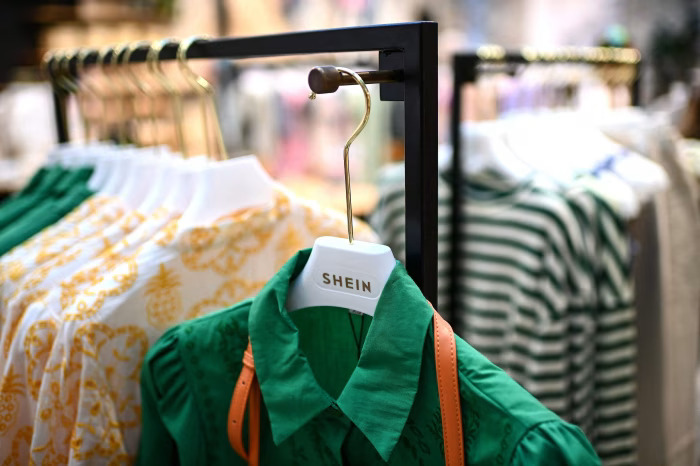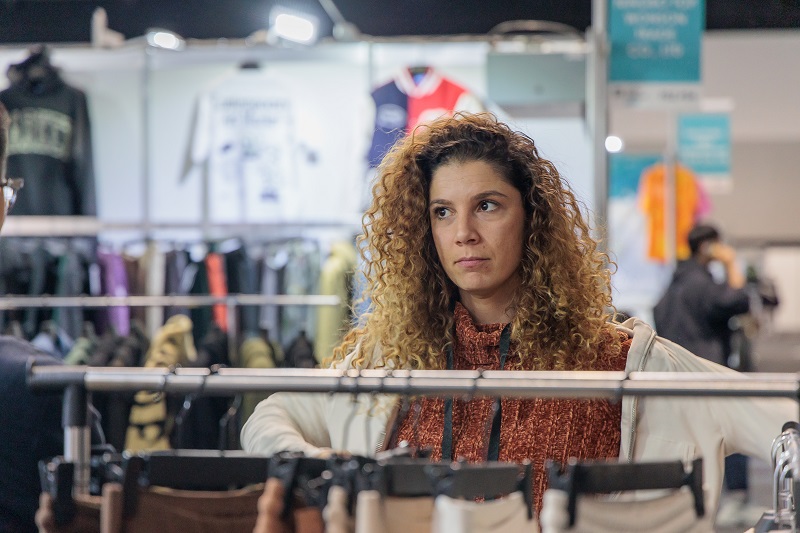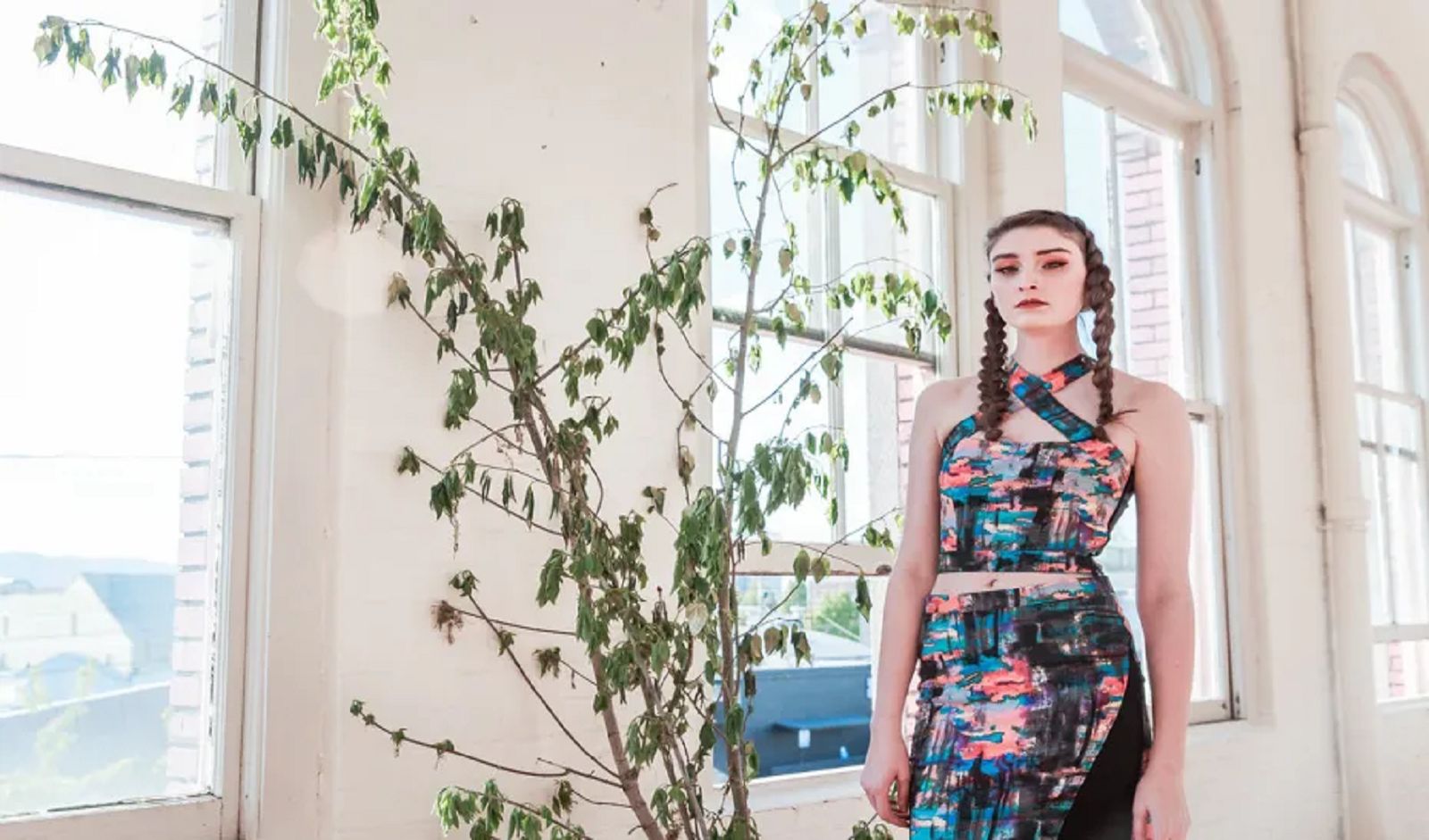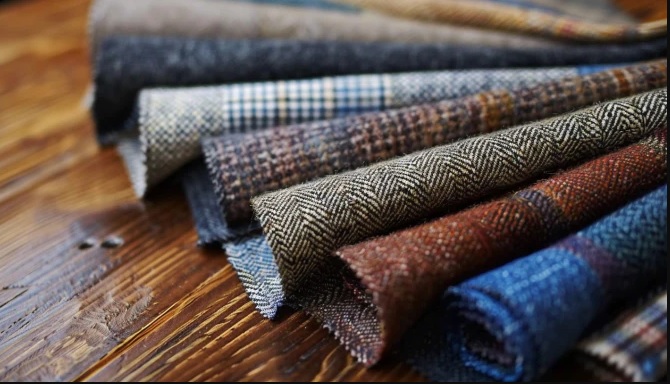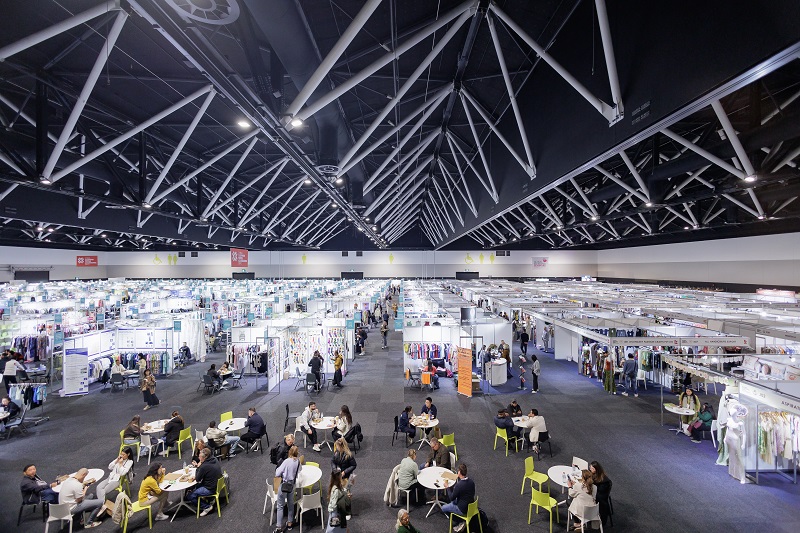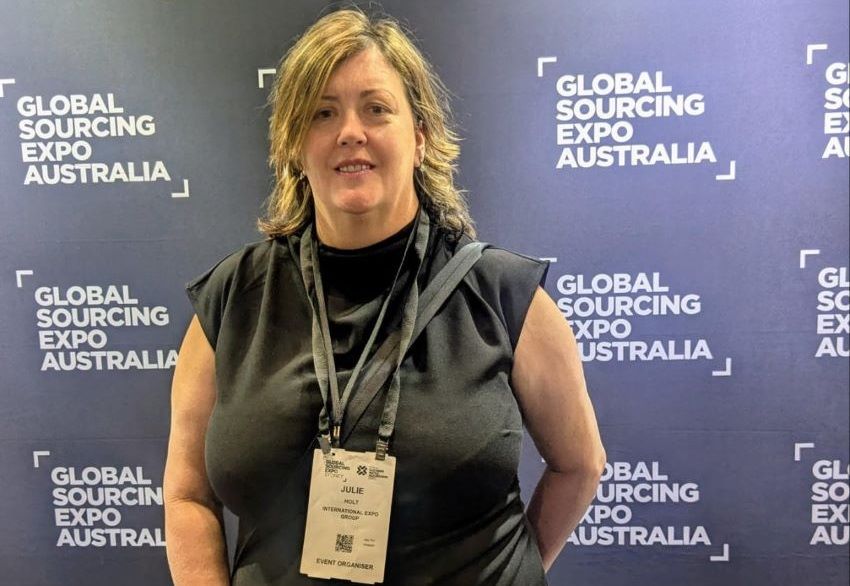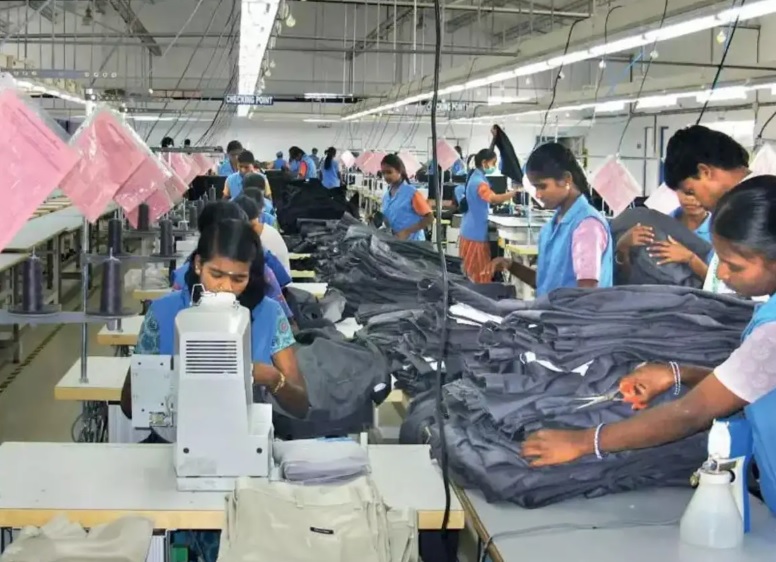FW
Continuing their strong double-digit growth, India’s apparel exports rose by 11.3 per cent Y-o-Y in May 2025, as per data by the Confederation of Indian Textile Industry (CITI). This rise comes as Western buyers increasingly turn to India as a reliable alternative to Bangladesh and China for apparel sourcing.
Export momentum picked up significantly due to political instability in Bangladesh following the ouster of the Sheikh Hasina government last August. Exports increased by 17.3 per cent in September to rise further by by 24.35 per cent in October.
Many buyers from developed countries are urging Indian suppliers to expand capacity and obtain key certifications, especially as India gains a duty advantage over China thanks to reciprocal tariffs imposed by the Trump administration.
This export boom offers much-needed relief to India’s apparel sector, which struggled through two years of weak demand after the pandemic.
India’s apparel exports declined post-COVID. Exports stagnated for about two years as consumers purchased fewer new clothes after the excessive buying during the pandemic, says Sanjay K Jain, Chairman, National Textile Committee, Indian Chamber of Commerce.
Green shoots of recovery began appearing after Bangladesh’s political upheaval, as buyers sought stability in their supply chains. Unlike India, Bangladesh’s apparel manufacturers have massive capacity to handle large orders quickly - something Indian exporters are now working to match.
Industry leaders believe India’s export growth will continue, thanks to the tariff advantage over China. There’s a huge opportunity for Indian apparel exporters. The $120 billion US market is the biggest prize. What we need is access to raw materials at competitive prices, adds Jain.
India currently holds a $10 billion share of the US market, compared to China’s $30 billion.
Meanwhile, as apparel exports accelerate, India’s raw cotton imports are also rising, with domestic cotton prices higher than global rates. According to the Cotton Association of India, cotton imports are projected to exceed 3.3 million bales (170 kg each) in 2024-25 — more than double last year’s 1.52 million bales.
Vancouver-based athleisure giant Lululemon has confirmed significant job cuts, impacting approximately 150 corporate employees at its Store Support Centers (SSCs). This decision is due to an evolving organizational structure, the company stated.
Reaffirming its commitment to supporting employees through this transition, Lululemon stated, these changes are part of a regular assessment of business operations to ensure future positioning. Through this move, the brand aims to operate with greater agility and further invest in growth, it added.
This restructuring comes amidst past concerns, including analysts' caution last spring regarding stagnant growth in the North American market. Additionally, in May 2024, Canada's Competition Bureau launched an investigation into Lululemon over ‘greenwashing’ allegations, concerning misleading environmental claims.
Despite these challenges, Lululemon was recently recognized as one of Canada's best employers, ranking 15th on Forbes' annual list earlier this year.

The fate of our old clothes is often shrouded in misconception. A widely held belief suggests that most donated garments are unceremoniously dumped in landfills, adding to the mounting environmental crisis. However, a new white paper titled “Beyond the Landfill Myth: Mapping the True Journey of Secondhand Clothing” by Bank&Vogue ltd/LTÉE reveals a more optimistic picture. Rather than ending their lifecycle in waste, a significant portion of secondhand clothing embarks on a global journey of reuse, resale, and recycling, contributing meaningfully to environmental sustainability and economic resilience.
This new narrative is not just about salvaging textiles; it’s about rethinking our relationship with fashion consumption, and recognizing the complex global networks that give our old clothes new life.
Global flows and destinations, mapping the trade
The trade of secondhand clothing operates through an extensive, transcontinental web of exchange. According to data from UN Comtrade, the US, Canada, Germany, and the UK are the world’s largest exporters of used garments. On the receiving end, countries such as Pakistan, Ghana, Kenya, Chile, and India serve as significant importers.
Once these clothes reach their destination, local businesses spring into action. Garments are meticulously sorted—items in good condition are sold in bustling resale markets, while damaged pieces are repurposed as industrial wiping cloths, mattress stuffing, or raw materials for textile recycling. In regions like East Africa, the influence is profound: the Mitumba Consortium Association of Kenya estimates that 60-80 per cent of the population wears secondhand clothing. The Global Fashion Agenda’s 2023 report, supports this trend, revealing around 73 per cent of globally collected secondhand clothes are either reused or recycled, decisively challenging the widespread belief that they are simply discarded.
Secondhand economies in action
Several countries stand out for their innovative and effective integration of secondhand clothing into local economic and environmental systems.
Kantamanto Market, Accra, Ghana
A cornerstone of West Africa’s used clothing industry, Kantamanto Market employs over 30,000 people. Every week, millions of garments are sorted, sold, or transformed, creating not only employment but also a strong mechanism for textile reuse. The OR Foundation, working within this ecosystem, supports tailors and creatives who specialize in upcycling otherwise unsellable textiles.
Iquique Free Trade Zone, Chile
In Chile, over 59,000 tons of used clothing are imported each year much of it via the Iquique Free Trade Zone. While the Atacama Desert has gained notoriety as a dumping ground, the broader narrative reveals substantial efforts to create value from waste. Local businesses redistribute clothing across Latin America and explore recycling innovations to mitigate environmental impacts.
Panipat, India
Known globally for its wool recycling industry, Panipat is a beacon of circular manufacturing. Used textiles from the West are shredded and re-spun into yarn, which is then used to make affordable blankets and garments. These products not only serve domestic needs but are also exported, highlighting how secondhand materials can be reincorporated into the global supply chain with economic and environmental benefits.
Measuring the gains
The secondhand clothing trade is more than just a charitable gesture—it delivers measurable benefits to both people and the planet.
Waste reduction
The UK-based WRAP (Waste and Resources Action Programme) reports that extending the life of a garment by just nine months can slash its carbon, water, and waste footprints by 20–30 per cent. This clearly illustrates how reuse can be a powerful tool in addressing fashion’s environmental toll.
Employment generation
From sorters in India to transport workers in Canada, the secondhand economy supports a vast and diverse workforce. Millions of livelihoods depend on this trade—especially in developing countries where resale markets and upcycling initiatives are often community cornerstones.
Circular economy integration
Entities such as SMART (Secondary Materials and Recycled Textiles Association) and EuRIC (European Recycling Industries’ Confederation) advocate secondhand clothing as a key pillar of circular economic models. Their research underscores that reuse has the lowest environmental impact of all post-consumer textile pathways, beating even recycling in sustainability metrics.
What lies ahead
Despite numerous advantages, the secondhand clothing ecosystem is not without challenges. Overconsumption in the West continues to generate excessive volumes of discarded garments, many of which cannot be absorbed efficiently by recipient markets. Infrastructure gaps in local recycling and upcycling capacities further compound the issue. Also, political resistance—such as proposed import bans in parts of East Africa—threatens to disrupt the trade’s economic and environmental benefits.
To address these concerns, the white paper recommends:
• Improved sorting systems: Ensuring that only usable clothing is shipped can reduce waste and improve efficiency.
• Investment in infrastructure: Local governments and international stakeholders must collaborate to build upcycling and recycling facilities.
• Awareness and education: By informing both consumers and policymakers of the real lifecycle of garments, we can shift mindsets away from disposal toward sustainability
Rethinking fashion’s afterlife
The journey of a secondhand garment is far from a straight path to the dump. It is a story of transformation—of economic opportunity, environmental stewardship, and global interconnectedness. As the white paper argues, rather than vilify the trade in used clothing or underestimate its impact, we must embrace it as a critical component of a more circular and sustainable fashion future.
Optimizing the secondhand system—through smarter donations, better infrastructure, and informed policy—offers a tangible way to reduce fashion waste, empower communities, and mitigate climate change. Your old T-shirt isn’t just a relic of past trends; it’s a building block for a more sustainable world.
HGH India, the country’s leading trade show for home textiles, décor, furniture, houseware, and gifts, has released its much-awaited Trend Report for 2025-26, themed ‘Emotion in Motion’. This flagship report reflects the company’s authoritative role in trend forecasting and design research for the Indian home and lifestyle sector.
The report has been curated through extensive research and cultural decoding to track the evolution of Indian consumer behaviour and design sensibilities. It captures how shifting preferences driven by millennials, Gen Z, sustainability imperatives, and digital integration are shaping a new narrative around identity, space, and aesthetic values within homes.
Segmented into four trend directions Future Fizz, Majestic Lagoon, Burgundy Bloom, and Chai & Biscuits the report blends Indian tradition, global design language, and contemporary attitudes. Each theme represents a fusion of colour palettes, materials, styles, and emotional cues relevant to today’s consumers.
Rajiv Merchant, CEO of Texzone Information Services Pvt Ltd, the organiser of HGH India, stated, “At HGH India, we see trend forecasting not just as aesthetic storytelling, but as strategic direction. Our Trend Report empowers brands, designers, retailers, and professionals to create offerings that reflect how India lives today and where it is heading.”
The Trend Report serves as a critical tool for manufacturers aligning product development with emerging visual and lifestyle cues, retailers planning relevant stock, and designers seeking inspiration for spatial narratives. Even end consumers more informed and aspirational than ever can find reflection and resonance in these themes.
At HGH India 2025, the Trends Pavilion will translate these forecasts into tangible product displays, visual merchandising concepts, and experiential zones, offering an immersive, sensory understanding of the themes projected to dominate the Indian home landscape.
HGH India continues to solidify its reputation as a key platform for home fashion intelligence with a unified, forward-looking vision tailored to industry needs and consumer aspirations.
India's textile exports declined by 2.71 per cent to $1685.11 million in May 2025 compared to $1732.01 million in May 2024. However, apparel exports increased by 11.35 per cent to $1511.50 million during the month from $1357.42 million in the corresponding month of the previous year. As per a report by Apparel Resources, combined textile and apparel exports during the month grew by 3.47 per cent to $3196.61 million compared to $3089.43 million in May 2024.
However, from April-May 2025, India’s textile exports declined by 0.39 per cent to $3297.68 million as against $3310.57 million in the same period of 2024. On the other hand, apparel exports increased by 12.80 per cent to $2282.87 million during the period compared to $2555.82 million in April-May 2024 period. Overall, cumulative textile and apparel exports for April-May 2025 rose by 5.36 per cent, totaling $6180.55 million from $5866.39 million in the corresponding period of 2024.
The report also highlights that raw cotton imports are increasing. This is primarily attributed to higher domestic prices in India compared to international prices, influenced by the Minimum Support Price (MSP) and import duties.
Making a grand return to Pitti Uomo in Florence on Tuesday, June 17, American designer-entrepreneur Tommy Hilfiger transformed the historic Palazzo Portinari Salviati into the ‘Hilfiger Social Club’ to unveil his new men's line, ‘New York,’ set to debut with the Spring/Summer 2026 collection.
A lively affair, the launch event featured loud music, a steady flow of spritz and whiskey, and a throng of influencers and actors, including Lucien Laviscount.
Restructuring its men's offerings, the brand introduced this more upscale line to complement its sportier collections and Tommy Jeans. The new aesthetic emphasizes soft tailoring, a departure from the previously discontinued Tailored Line.
Designed to be both dressy and sophisticated, yet inherently relaxed, the New York collection revisits classic Tommy Hilfiger pieces while re-establishing a connection to the brand's origins. A distinctive dark blue label, referencing the original 1985 lion crest, marks this new range. The collection is built around timeless preppy essentials: the navy-blue blazer, the button-down shirt, the trench coat, and the chino.
With a strong emphasis on quality, the brand reimagines key pieces in luxurious fabrics and feature soft, subtly structured cuts designed to suit modern life. Suits are crafted from cotton twill by Italian weaver Tessuti Di Sondrio or other esteemed ‘Made in Italy’ names like Lardini. The 19-look collection draws inspiration from modern American style, but with a more relaxed approach. Through this collection, the brand aims to adopt a new approach to informal dressing, characterized by impeccable, crafted silhouettes that are elegant and easy to wear, bringing cool elegance to everyday life.
Men are currently moving towards something more refined, without losing the feeling of dressing with ease and pleasure, notes Hilfiger. This collection reflects that spirit through its light and comfortable materials. The collection uses technical and stretch fabrics and lots of knitwear, he adds.
ACIMIT, the Association of Italian Textile Machinery Manufacturers, will participate for the first time in Milano Unica, the leading international trade fair for premium fabrics and accessories, scheduled from July 8 to 10, 2025, at Rho Fiera Milano.
With its own institutional booth, ACIMIT aims to highlight the innovation and excellence of Italy’s textile machinery sector while fostering stronger links between machinery producers, textile exhibitors, and global buyers. This initiative seeks to enhance industry collaboration and promote awareness around sustainable, circular, and digital solutions developed by Italian manufacturers.
Through this strategic presence, ACIMIT will spotlight the advanced technologies that support environmentally conscious production and digital transformation areas where Italy continues to set benchmarks in textile machinery.
Marco Salvade, President of ACIMIT, commented, “It is essential for our Association to be present at such a significant trade event. The synergy between Italian excellence in textiles and textile machinery has always been, and continues to be, a key factor in strengthening the leadership of the entire Italian textile supply chain.”
ACIMIT’s debut at Milano Unica marks a new chapter in aligning Italy’s machinery innovation with the evolving needs of the global fashion and textile industry.

In the fast-paced, ever-evolving world of fashion, apparel, and textiles, efficiency and agility are paramount. The Theory of Constraints (TOC), a transformative management philosophy, offers a focused approach to identifying and eliminating critical chokepoints, leading to enhanced throughput, reduced lead times, and a more agile response to market demands. A look at the core principles of TOC, its evolution, and its applications in the fashion and textile industry, illustrated through real-world case studies and compelling data.
The Theory of Constraints, developed by Dr Eliyahu M. Goldratt in the early 1980s and first introduced in his seminal business novel, The Goal, puts forward a simple yet profound idea: every complex system, including a manufacturing plant or a supply chain, has at least one constraint (or very few) that limits its ability to achieve more of its goal. For most businesses, the ultimate goal is to make more money, now and in the future. TOC provides a structured methodology to systematically improve that constraint until it is no longer the limiting factor, thereby increasing the system's overall performance.
At its core, TOC is about focus. Instead of diluting improvement efforts across an entire organization, it directs attention and resources to the part of the system that is holding back progress – the weakest link in the chain
Understanding the Theory of Constraints (TOC)
Theory of Constraints (TOC) is a systematic approach to identify and address the biggest limiting factor in a system, with the goal of enhancing overall performance and profitability.
Defining the goal
At the heart of TOC lies a fundamental question: What is the goal? For most for-profit organizations, including fashion brands and manufacturers, the ultimate goal is sustainable profit generation. TOC provides the lens to evaluate every decision, process, and investment based on how directly it contributes to achieving this goal. It drives organizations to focus their efforts not just on doing more, but on doing what matters most to achieve measurable outcomes.
The constrains
A constraint in TOC is anything that prevents a system from performing better relative to its goal. These constraints are not always visible and can take various forms:
• Physical constraints: These are tangible limitations such as machinery with low throughput, insufficient skilled labor, material shortages, or a particular process that consistently causes delays.
• Policy constraints: These are rules—formal or informal—that restrict performance. It could be outdated standard operating procedures, flawed scheduling systems, or business models that discourage flexibility.
• Market constraints: Even if a company can produce at scale, limited demand can act as a ceiling to growth.
• Paradigm constraints: These are mental models and ingrained beliefs that organizations or leaders hold onto, often without question. For example, resistance to adopting automation or fear of changing supplier relationships may hinder progress.
Understanding which type of constraint is present is essential for applying TOC effectively.
The five focusing steps
The cornerstone of TOC is its five-step process, known as the Five Focusing Steps. This cyclical method enables organizations to continuously identify and resolve constraints, allowing them to optimize performance and adapt over time.
1. Identify the system’s constraint(s)
The journey begins by pinpointing the weakest link—the bottleneck that limits the system’s overall output. Whether it's a specific process, resource, or market limitation, recognizing this constraint is key to driving meaningful change.
2. Exploit the constraint
Once the constraint is known, the next step is to get the most out of it with existing resources. This might mean ensuring the bottleneck operation is always supplied with the right inputs, never sits idle, and is focused on priority tasks.
3. Subordinate everything else
All other operations should align with the needs of the constraint. Non-bottleneck processes may need to reduce output or adjust their pace to avoid overwhelming the constraint with unnecessary inventory or work-in-progress (WIP).
4. Elevate the constraint
If the constraint still limits the system, it's time to consider investments—be it in new machinery, hiring more personnel, re-engineering a workflow, or even rethinking how the business operates. This step typically involves costs but is essential for unlocking growth.
5. Return to Step 1, avoiding inertia
Once the current constraint is resolved, another part of the system will likely emerge as the new bottleneck. The process starts again, reinforcing TOC as a tool for continuous improvement. A crucial warning here is to avoid inertia—the tendency to rest after progress, which itself becomes a constraint. Vigilance and adaptability are key.
Weaving TOC into fashion’s fabric
For fashion businesses—whether a manufacturing unit facing production bottlenecks or a brand navigating slow demand—TOC offers a powerful way to align resources, drive operational clarity, and ensure every action contributes to sustainable profitability. In an industry marked by rapid change, complex supply chains, and evolving consumer preferences, TOC equips leaders with a mindset of ongoing refinement, always focused on what’s holding us back—and what can we do next to move forward.
Objectives of TOC in the fashion apparel and textile sector include:
• Increase throughput: Maximize sales and production output.
• Reduce lead times: Drastically cut the time from design to retail.
• Improve on-time delivery performance (OTDP): Reliably meet customer and retailer deadlines.
• Minimize work-in-process (WIP) and finished goods inventory: Align production with actual demand to reduce tied-up capital and obsolescence risk.
• Reduce Operational Expenses: Achieve cost efficiencies as a byproduct of improved flow and reduced waste.
• Enhance Flexibility and Responsiveness: Quickly adapt to changing market trends.
The impact
Implementing TOC can lead to a paradigm shift from a "cost-world" perspective (focusing on local efficiencies and cost per unit) to a "throughput-world" perspective (focusing on system-wide flow and generating more sales). This is particularly relevant for fashion companies struggling to balance cost pressures with the need for agility. The quantitative impacts across the industry can be substantial:
|
Metric |
Before TOC Principles (Illustrative) |
After Implementing TOC-aligned Principles |
|
Design to Shelf Lead Time |
~6 months |
As low as 15 days |
|
Inventory Turnover Ratio |
~4x/year |
~12x/year |
|
Lost Sales Due to Stockouts |
~18% |
~7% |
TOC stitching success in the industry
The practical application of TOC principles has yielded significant results for various players in the fashion, apparel, and textile sectors.
Zara (Inditex): The global fast-fashion giant has famously implemented TOC principles to optimize its highly responsive supply chain. A key constraint identified was the design-to-retail cycle time. By subordinating production and logistics to a streamlined design process and elevating response times, Zara has turned this potential constraint into a formidable competitive advantage.
|
Metric |
Before TOC Principles (Illustrative) |
After Implementing TOC-aligned Principles |
|
Design to Shelf Lead Time |
~6 months |
As low as 15 days |
|
Inventory Turnover Ratio |
~4x/year |
~12x/year |
|
Lost Sales Due to Stockouts |
~18% |
~7% |
While Zara's model is a complex blend of strategies, its rapid replenishment and demand-chasing capabilities align strongly with TOC's emphasis on identifying and exploiting constraints to improve flow and throughput.
Indian textile manufacturer: An Indian textile mill producing dyed fabrics faced significant delays in its dyeing and finishing processes, which were identified as critical bottlenecks. Implementing TOC involved a focused effort to improve scheduling and maintenance for these constraint areas.
|
Production KPI |
Before TOC Implementation |
After TOC Implementation |
|
Order Fulfillment Time |
25 days |
14 days |
|
Machine Downtime (Constraint Area) |
22% |
8% |
|
Throughput (meters/day) |
12,000 |
20,000 |
The targeted improvements in exploiting and elevating the dyeing and finishing constraints led to an increase in throughput, faster order fulfillment, and enhanced customer satisfaction.
Challenges in implementation
Despite its proven benefits, implementing TOC is not without its hurdles. Common challenges include:
• Identifying the true constraint: It can sometimes be hidden or misidentified, especially if it’s a policy or paradigm.
• Resistance to change: Shifting mindsets from local efficiencies (e.g., keeping all machines busy) to system-wide optimization (e.g., non-constraints being paced by the constraint) can be culturally difficult.
• Data collection and analysis: Accurately measuring throughput, inventory, and operating expense, and tracking constraint performance requires robust data systems and analytical capabilities.
• Management commitment: Sustained focus, understanding, and unwavering support from top management are crucial for navigating the changes TOC entails.
• Overcoming inertia: Once an initial constraint is broken, the system can easily fall back into old habits if the continuous improvement cycle (Step 5) is not diligently pursued.
The future stitch
In an industry as dynamic and demanding as fashion, apparel, and textiles, the ability to quickly adapt, reduce waste, and improve flow is paramount. The Theory of Constraints offers a logical, focused, and high-impact methodology to achieve these goals. By relentlessly identifying and addressing the weakest links in their value chains, FAT companies can significantly enhance their competitiveness, profitability, and responsiveness.
As consumer expectations continue to evolve towards greater speed, personalization, and sustainability, TOC stands as a powerful ally. Its principles of optimizing resource use, minimizing unnecessary inventory, and improving overall system efficiency align well with the broader goals of a more responsible and resilient fashion future, enabling companies to not just keep up with trends, but to set them with newfound operational agility.
Kering’s Board of Directors, chaired by François-Henri Pinault, has approved the appointment of Luca de Meo as Chief Executive Officer of the Group, marking a major governance shift for the French luxury conglomerate.
The decision, recommended by the Appointments and Governance Committee, represents a strategic evolution for Kering as it enters a new phase of leadership and growth. In a significant structural change, the roles of Chairman and CEO will be separated aligning the Group with global best practices for major listed companies.
The transition will take effect following a Shareholder Meeting scheduled for September 9, 2025, where shareholders will vote on de Meo’s appointment as Director and the new compensation policy. Pending approval, de Meo will officially assume the CEO role on September 15, 2025.
François-Henri Pinault, who has led Kering for two decades, described the appointment as a carefully considered next step. “After twenty years of transforming Kering into a major global luxury player, the Group is ready for a new stage in its development,” he said. “Luca’s experience at the helm of an international listed group, his sharp understanding of brands, and his sense of a strong and respectful corporate culture convinced me he is the leader I was looking for.”
Luca de Meo, currently CEO of Renault Group, brings extensive international leadership and brand expertise. Commenting on his appointment, he said: “I am approaching this new professional challenge with enthusiasm, eagerness, and confidence, inspired by the strength of the Group’s brands and the expertise of its people.”
As Chairman, Pinault will continue to guide Kering’s long-term vision while de Meo steers operational leadership.
Failure to abolish sales tax may lead to widespread factory closures, warn Pakistan’s cotton ginners
Failure of the federal budget to abolish sales tax on cotton and its by-products may lead to widespread factory closures and rise in undocumented economy, warned cotton ginning and oil mill sector leaders in Pakistan.
Business leaders in the country urged Prime Minister Shehbaz Sharif to redirect over Rs 700 billion annually allocated to the Benazir Income Support Program (BISP). These funds should instead be used to revitalize businesses struggling under excessive taxation, they said, adding, strengthening industries, rather than providing aid, is key to national economic stability, they argue.
Senior cotton ginners revealed, formed at the Prime Minister's behest, a pre-budget committee had fully endorsed their plea to either eliminate sales tax or implement the Export Facilitation Scheme (EFS) domestically. Despite this, the budget maintained sales tax on raw cotton, cottonseed, oilcake, and cottonseed oil, and notably, did not impose it on imported cotton. This oversight intensifies fears that many more of Pakistan's already non-operational over 800 ginning factories and over 1,000 oil mills are now at risk.
Stakeholders attributed Pakistan's fall from the world's fourth-largest cotton producer to seventh to the sales tax on ginning and oil mills exceeding 70 per cent, lax crop zoning enforcement, increased sugarcane cultivation, and the sales tax exemption on imported cotton. Consequently, the state spends a significant portion of Pakistan’s foreign exchange reserves on importing cotton, yarn, and edible oil. Critics argue, diverting over Rs 700 billion to charity, or alleged misuse, is counterproductive when industries are collapsing.
Allocate these funds to revive the industry, experts appealed to Sharif. Despite increase in cotton arrivals, ongoing sales tax limits factories’ operations, leading to a fall in cotton prices. This not only harms farmers but also weakens the national economy, and raises fears of a sharp increase in undocumented business activity, they argued.

